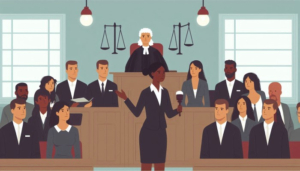
In the realm of debt collection, the name Pressler, Felt & Warshaw (PFW) has become synonymous with controversy and legal battles. This New Jersey-based law firm has been embroiled in numerous lawsuits alleging deceptive and unfair practices, leading to millions of dollars in settlements and penalties.
A Pattern of Abuse
PFW’s alleged misconduct spans a wide range of tactics, including:
- Filing lawsuits without sufficient evidence of debt validity
- Harassing and intimidating consumers
- Failing to provide adequate notice of debt collection actions
- Misrepresenting the amount of debt owed
Landmark Cases and CFPB Action
In 2016, the Consumer Financial Protection Bureau (CFPB) took action against PFW, levying a $1 million civil penalty and imposing strict restrictions on the firm’s debt collection practices. This landmark case highlighted the extent of PFW’s alleged wrongdoing and served as a warning to other debt collectors.
The Impact on Consumers
PFW’s actions have had a profound impact on consumers, causing them undue stress and financial hardship. Many individuals have been forced to pay debts they did not owe or have had their credit scores unfairly damaged.
Holding Debt Collectors Accountable
The cases against PFW serve as a reminder of the importance of holding debt collectors accountable for their actions. Consumers should be aware of their rights under the Fair Debt Collection Practices Act (FDCPA) and seek legal counsel if they believe they have been unfairly treated.
Conclusion
Pressler, Felt & Warshaw’s history of alleged misconduct paints a disturbing picture of a law firm that prioritizes profits over ethical practices. While the CFPB’s actions have helped to curb some of the firm’s worst excesses, consumers remain vigilant in protecting their rights against aggressive debt collection tactics.
FAQs
What is the Fair Debt Collection Practices Act (FDCPA)?
The FDCPA is a federal law that prohibits debt collectors from using unfair, deceptive, or harassing practices to collect debts.
What are some of the red flags of a debt collection scam?
Red flags include high-pressure sales tactics, threats of legal action, and demands for immediate payment.
What should I do if I believe I have been harassed by a debt collector?
You should file a complaint with the CFPB and consider seeking legal counsel.
Can I sue a debt collector for violating the FDCPA?
Yes, you can sue a debt collector for violating the FDCPA and may be entitled to damages.
What is the statute of limitations for filing an FDCPA lawsuit?
The statute of limitations for filing an FDCPA lawsuit is one year.
What are some resources for consumers who have been harassed by debt collectors?
The CFPB, the Federal Trade Commission (FTC), and the National Consumer Law Center offer information and resources for consumers who have been harassed by debt collectors.






